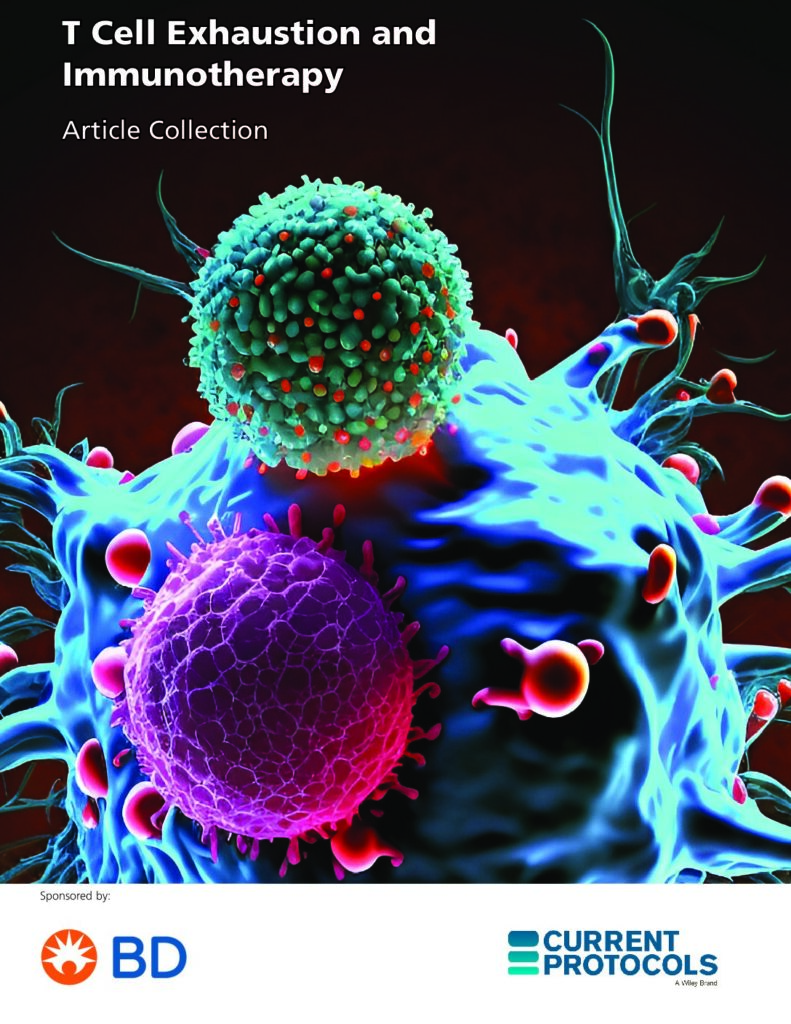Download this complimentary Article Collection today!
This Article Collection provides an overview of T cell exhaustion in the context of cancer therapeutic research.
The articles featured in this publication are intended to educate readers on important considerations and strategies for studying T cell exhaustion in their own research.
What you will learn about:
- Mechanisms of T cell exhaustion and their implications in cancer therapy
- Strategies to regulate T cell exhaustion
- Key considerations to study T cell exhaustion and valuable tools for T cell research

More Information
Cancer is one of the leading causes of death worldwide, affecting millions of patients and their families every year. The development of immunotherapies, such as chimeric antigen receptor T-cell (CAR-T cell) therapy, revolutionized cancer medicine.
Despite the promise of immunotherapies, their efficacy is limited by T cell exhaustion, a phenomenon where T cells lose their ability to fight tumors or viruses after prolonged exposure. A thorough understanding of T cell exhaustion, therefore, is critical to developing novel strategies to overcome this issue and restore therapeutic efficacy.
Articles contained in the collection:
- Yin et al., (2023). T-cell exhaustion in CAR-T-cell therapy and strategies to overcome it. Immunology.
- Roe (2022). NK-cell exhaustion, B-cell exhaustion and T-cell exhaustion—the differences and similarities. Immunology.
- Li et al., (2022). Metabolic plasticity and regulation of T cell exhaustion. Immunology.
- Peng et al., (2023). T-cell exhaustion: A potential target biomarker of the tumour microenvironment affecting oesophageal adenocarcinoma. J Gene Med.
- BD Biosciences (2023). Strategies and considerations for the characterization and deeper immunophenotyping of T cells.

